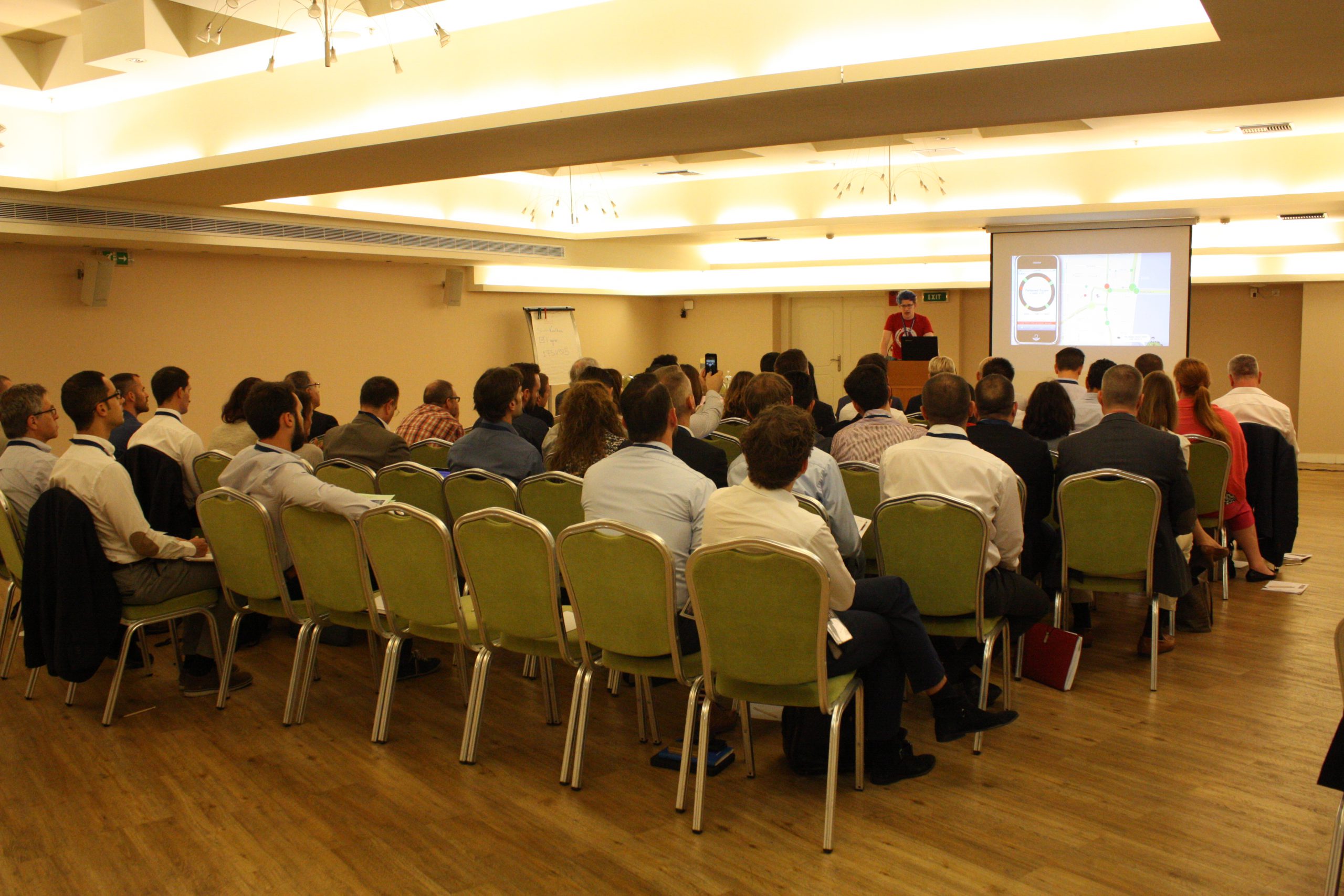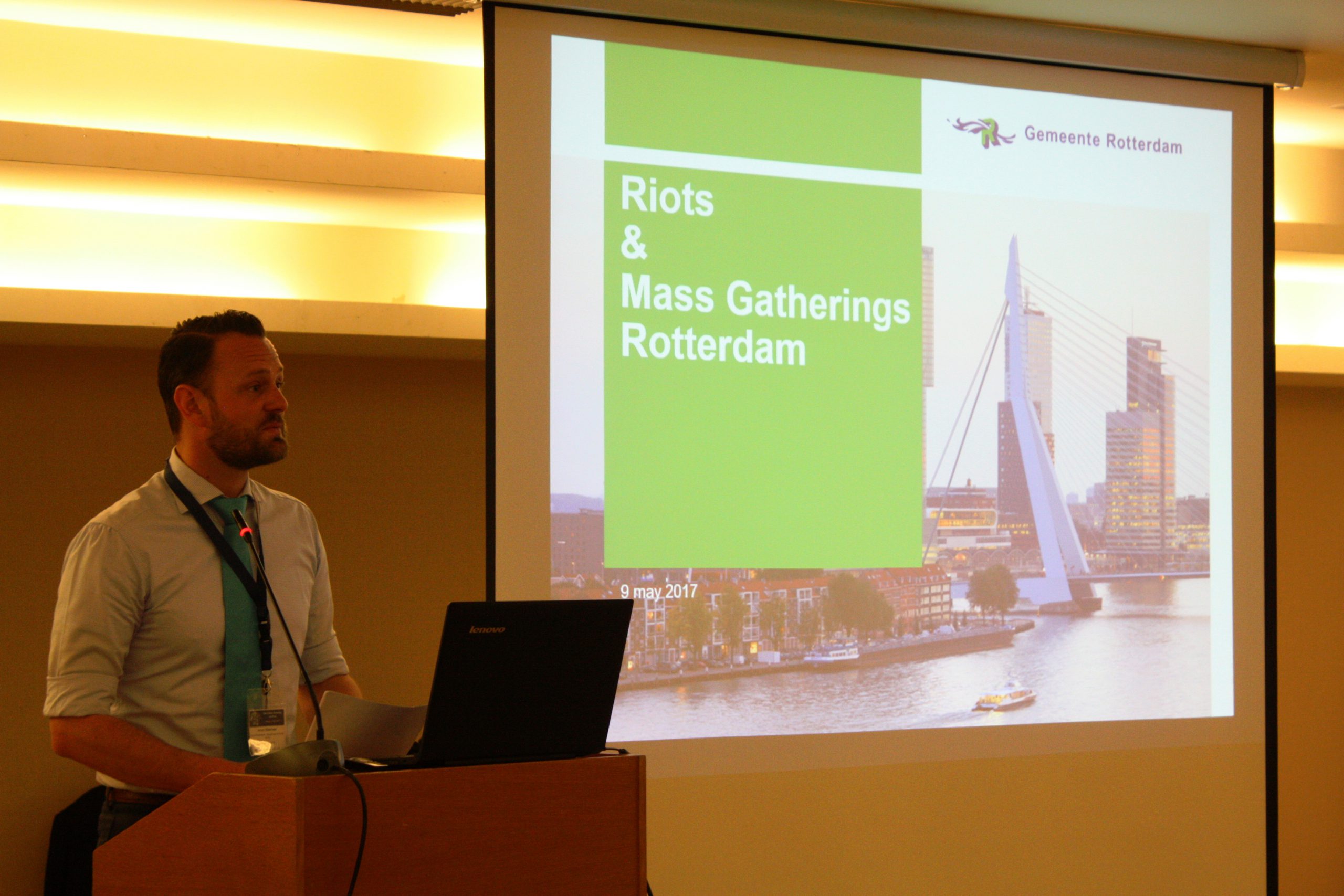Athens, Greece, May 2017 – How to best use information gathered via social media to predict and plan before events? How to use social media to assist their policing both in gathering real-time intelligence and in communicating with participants to ensure security ? How can law enforcement agencies and their partners utilise social media to gather intelligence in criminal investigations after such events? These were the main questions discussed at the workshop on “Riots & Mass Gatherings” of the MEDI@4SEC project, of which Efus is a partner, held in Athens (Greece), on 9 May.
Social media platforms are playing an increasing role in the planning and evolution of recent mass gatherings. They have enabled citizens to organise themselves more swiftly and effectively through the frictionless distribution of timely information. Whilst this provides law enforcement agencies (LEAs) and their partners with an opportunity to monitor crowds and communicate directly with citizens, it has been suggested they are playing catch-up in these situations. Using examples from a number of mass gathering situations presented by experts, researchers and practitioners from LEAs, local and national authorities, software developers, and event organisers engaged on the topic, this workshop explored the potential uses and consequences of social media involving large crowds before, during and after such events.
Speaking in the name of the city of Rotterdam, an Efus member, Jeroen Slikkerveer presented the city’s public safety department’s experience in monitoring riots and mass event thanks to its digital platform. He focused in particular on the different tools, softwares and social media used by the city of Rotterdam.
Through the different working sessions, the workshop participants examined the various social media practices in use as well as the opportunities, strengths, weaknesses and challenges of their use in specific situations:
Large-scale events (e.g. parades, festivals, sporting events), where large numbers of people congregate for a particular activity and which can be targeted by criminals or terrorists. One of the main points that emerged from the discussion was that social media can be useful as a tool to analyse open data from previous events in order to develop a strategy based on experience and to enable LEAs to cooperate with stakeholders in real and digital places. Participants also recommended to update privacy legislation to reflect digital technologies.
Protests, demonstrations and riots where civilians can mobilise and organise themselves into groups quickly and where social media can enable them to coordinate their movements. Participants thought that two of the main issues are to change the paradigm of policing and the image of LEAs via social media, and to have a platform and an organisational approach in order to swiftly exchange information.
Coping with mass migration, an increasing challenge across Europe, which often leads to mass gatherings or encampments that can persist for weeks or even months. The workshop participants proposed the following recommendations: drafting a guide of best practices for LEAs, storytelling together with migrants to counter deceit by smugglers, finding main influencers on social media within migrants groups and communicating directly in their languages.
The management of mass gatherings involves various stakeholders such as citizens, police forces (including riot forces), local and national governments, emergency response organisations, digital volunteers, etc. The use of social media must be integrated in their daily activities before, during and after incidents happen. Social media can facilitate efforts to communicate and collaborate within the so-called “digitized society” and increase situation awareness and safety when disruptive events unfold. LEAs, in cooperation with stakeholders, have an additional obligation to facilitate peaceful mass gatherings and protect the freedom of association, belief, and expression while maintaining public order.
More information on the MEDI@4SEC project: media4sec.eu






